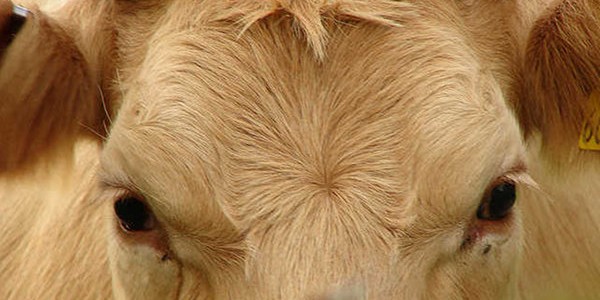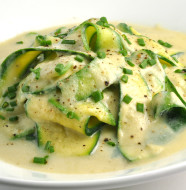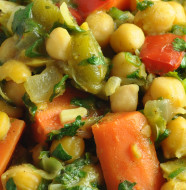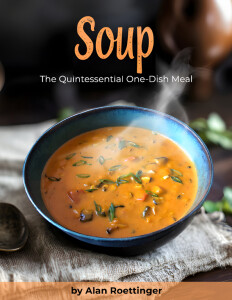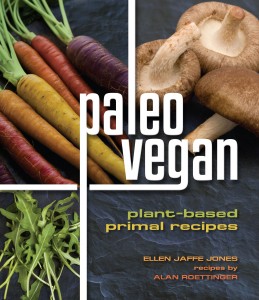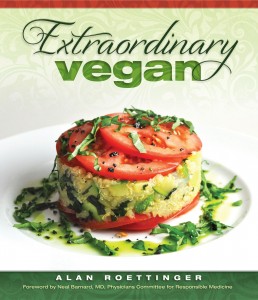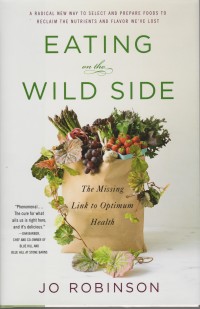I was flipping through video clips one afternoon, drifting in that free-associating, one-thing-leads-to-another phenomenon that tends to occur on YouTube, when I saw one that raised the question whether “vegan” is Islamic. Apparently an imam had been asked the question, and the video was his reply. This was way too intriguing to pass up.
It happens that in Islam, as in most religions, some things are halal (permitted) and others are haram (forbidden). The imam explained that the vegan diet is permitted, but not Islamic, meaning that although there is no injunction against veganism, there is no stance on it one way or another. He went on to describe the halal method for slaughtering an animal, which was new to me.
First the animal is made to lie down. An imam performing the prescribed slaughter will stroke the animal in a gentle way until it is calm and still. Then, with a practiced hand and a razor-sharp knife, he will quickly slit the animal’s throat. At the moment the imam makes the cut, he utters, “bismillah” (“in the name of God”), sanctifying the act. Ideally, the animal is not even aware that this has happened, and merely loses consciousness as it bleeds out. Only meat from animals sacrificed in this way is permitted for Muslims—at least according to that imam in the video.
And you know what? I can’t find fault with that. If you think you need to eat meat, then that’s definitely the way to go. There are versions of this ritual in ancient cultures all over the world. Native Americans would make peace with animals they hunted, acknowledging the sacredness of the life they took, and thanking the animal for becoming their food. I totally get it. Back when humans actually had to personally kill the animals they ate, there was a natural reverence for both the creature and the process. They felt a kinship with other living things, and killing one of them—even for survival—was not to be taken lightly. Observing some form of ritual that honored the transference of life from one creature to another made the killing and the meat “permissible.”
The modern world has largely dispensed with that reverence for the life of animals, willfully turning a blind eye to the creature’s wellbeing and the process of taking a life. The killing has been farmed out to slaughter mills that slay hundreds of animals per hour, with no consideration for their sentience or their irreplaceable lives. It is a horrifically ugly enterprise, both for the animals and, as we’re learning with increasing frequency, for food safety. It seems almost once a week a story emerges of meat recalls due to e.coli or salmonella infection. No one mentions the fundamental casualty of this roaring death train, which is our connection to the life that is taken, and the profound personal cost to us that the loss of this relationship represents.
Now we have a new version of what is permitted, a secular halal, a modern kosher. Health, sanitation and safety standards are the new “permitted,” entrusted to protect us from foodborne illness. Unfortunately, they are clearly flawed—as the frequent recalls show—and are often devised to serve the convenience of the food industry, not the health of consumers—as evidenced by the long list of pesticides, chemical additives, artificial flavors, and preservatives, many of which are known to cause health problems.
Most harmful to us as human beings, is that these new standards are bereft of the primary component inherent in the old ways. The connection between eater and eaten has been severed, not only by lack of knowledge about what goes on at industrial farms, but—especially in the case of animal food—about how it gets from farm to table. The fact is that people really don’t want to know, because knowing would inhibit the pleasure of gobbling down a basket of chicken wings or gnawing on a rack of baby back ribs. But unconsciousness is not our friend, and it inevitably costs us dearly, in many more ways than one. If knowledge is power, not knowing is impotence.
So, getting back to halal and other forms of what is deemed acceptable, I wonder if it’s smart to accept any set of standards as automatically valid—especially in deeply personal matters. I’m not suggesting we disobey laws, or that we should presume to amend anyone’s religion. What I’m proposing is that we question the thoroughness of what is “permitted,” and seek higher ground. Simply because no law prevents the food industry from marketing processed “food” packed with artificial flavors and colors, laden with harmful fats, salt and sugar, does that make it safe? Just because we can ignore the ethics and health implications of eating animals that have been raised in the most despicably unnatural conditions imaginable, does that mean it’s wise to do so?
Government regulations are the last line of defense to prevent the food supply from becoming truly poisonous. What is permitted represents the minimum acceptable standard, and that’s all the food industry is required to meet with its products. It’s up to us to reach higher and set our own standard, to satisfy all the criteria that matter to us. It looks to me like the time has come for the training wheels to come off—to transcend the need for rules of “permitted” and “forbidden,” and to commit to living as consciously as possible. When “good enough” isn’t good enough anymore, we can excel as human beings, return to that reverence of our ancestors with a deeper sense of its value, and begin to create the world we’ve always dreamed is possible.
.
.
.
Note: I first posted this piece on OneGreenPlanet.org, on April 10th, 2012

